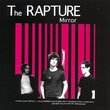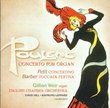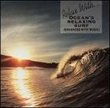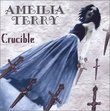| All Artists: Thinking Plague Title: Early Plague Years Members Wishing: 0 Total Copies: 0 Label: Cuneiform Release Date: 9/19/2000 Genres: Alternative Rock, Pop, Rock Styles: Progressive, Progressive Rock Number of Discs: 1 SwapaCD Credits: 1 UPC: 045775014128 |
Search - Thinking Plague :: Early Plague Years
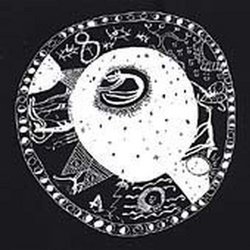 | Thinking Plague Early Plague Years Genres: Alternative Rock, Pop, Rock
|
Larger Image |
CD DetailsSimilar CDs
|
CD ReviewsThinking Plague is too good. Lord Chimp | Monkey World | 08/03/2003 (5 out of 5 stars) "To the average prog fan: This music will frighten you. Beware.To the adventurous prog fan: Prepare to be blown away.To the fan of experimental rock: Check it out, you'll dig this original band.To the dullards and fools: Don't even bother." Essential collection of Thinking Plague. Lord Chimp | Monkey World | 08/03/2003 (5 out of 5 stars) "Thinking Plague is a state-of-the-art American rock band with musical affinities to the Rock-in-Opposition movement. While it would be easy to imitate Henry Cow (or whoever) and boast a great accomplishment in profundity, Thinking Plague takes the high road and broadens the RIO ethic with groundbreaking innovations and eccentric songwriting.On _Early Plague Years_, Bob Drake has taken the bands first two albums, 1984's _...A Thinking Plague_ and 1986's _Moonsongs_, remastered them completely and done some snipping to a few admittedly effusive sections in order to fit it all on one CD (any editing here is unfortunate but a fair tradeoff). Thanks to Drake, these albums sound great. Thinking Plague, to most people, is abrasive, scary, and unmeleodic. I've heard the "nails on a chalkboard" description thrown around a lot. This is mainly attributable to their penchant for atonality, which is a common feature in their music along with long, complex songs and convoluted metrical changes. Personally I find Thinking Plague extremely melodic, catchy, energetic, and fun to listen to. Songs like "Warheads" -- an ominous composition with harsh, stark drums, mantra-like vocals, and angular, dissonant melodies (the final dirge is one of the most apocalyptic of things) -- and "Etude for Combo" -- an instrumental that was recorded live in the studio, and it like King Crimson possessed by evil spirits -- are definitive Plague songs. The two 15-minute epics, "Moonsongs" and "Thorns of Blue and Red / the War", are outstanding, multisectioned journeys through the dark, haggard forests around a sunny, happy prog town, full of great parts, especially the huge percussion jams in "Moonsongs". Actually one of my favorite parts in any Thinking Plague song is in "Moonsongs": the killer section where they play fast, repetitive melodic fragments of Susanne Lewis' sampled voice (it's MIND-WARPING), all the while the heavy bass and drums crash and pound with growing intensity. The lyrics of "Thorns of Blue..." are rather disturbing, as they were taken from a poetry book in the garbage behind a hospice. They have a very dark, imminent feel that goes well with TP's music. HOI. "How to Clean Squid" is insane discourse on, well, how to clean squid (lyrics taken from a cookbook), with a heavy rhythmic pulse and wacky vocals from Sharon Bradford. "Four Men in the Rain" sounds like a drunken string quartet on a submarine and "Collarless Fog that one day soon" is a strange, minimalist piece.There is a close relationship between Thinking Plague, the 5uu's, and U Totem in both the members involved and the compositional traits of each. Each band is amazing and important, proving that American RIO-school bands are doing teh prog thing better than anyone right now. Explore all these artists and prepare to have your world expanded a thousandfold. If you're looking for a good place to dive right into these murky waters, _Early Plague Years_ is hard to beat. You'd have to be primordial ooze to not think this is brilliant." Better than people say! A. Temple | Ann Arbor, MI | 03/27/2001 (4 out of 5 stars) "This is a re-release of the first two albums by one of the greatest experimental rock bands of all time, so it's not surprising that, reputations aside, there's some amazing stuff on here. Fans of the band may have noticed that their third album, "In This Life", was much less proggy and more indie-ish than their fourth, "In Extremis". Although the band's sound maintains some consistent elements--the're still very out-there, atonal and rhythmically off-the-wall with time-signature changes--the progrock influence is rarely detectable here, replaced instead by aggressive guitars, often half-chanted vocals, and a DIY spirit that would almost seem punk if these songs weren't so long and complex. Standouts include: the 15-minute-long, multi-part "Moonsongs (original 1986 mix)" (if you know "In This Life", you've heard a nearly-identical version as a bonus track), which ranges from electronic-minimal voice sampling to tribal chanting and percussion to beautiful quasitonal vocalizing; the furious "Warheads"; "The Taste that Lingers On", a song that almost makes you queasy but sticks in your mind like the "gray mass" mentioned in the lyrics; "I Do Not Live", a pained song full of distorted vocals; and, best of all, "How To Clean Squid", in which the band took instructions on how to clean a squid from a gourmet cooking magazine and set them to music to produce one of my favorite Plague songs and one of the scariest things I've ever heard in my life."
|

 Track Listings (12) - Disc #1
Track Listings (12) - Disc #1